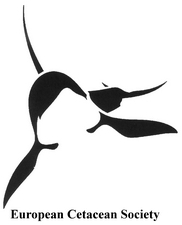European Cetacean Society

The European Cetacean Society (ECS, established 1987) was first internet-enabled in the pre-web days of 1992. It has been present ever since with mail, mailing lists and a web site.
Aims
- to promote and co-ordinate the scientific study and conservation of cetaceans;
- to gather and disseminate information to members and the general public.
Setting
The European Cetacean Society (or ECS for short) was formed in January 1987 at a meeting of 80 scientists interested in cetaceans (whale and dolphin) from 10 European countries. A need was felt for a Society that brought together people from European countries studying cetaceans in the wild, allowing collaborative projects with international funding. Ten years later already hundreds of members from tens of countries fill the ranks!
The ECS is present on the internet since pre-web 1992. Students make up about 50% of the membership, proving the essence of the ECS: to bring students and scientists together to improve in and collaborate in marine mammal science. This collaborative site, OpenWetware, will assist in helping ECS students and scientists alike to help each other. This is 'Science 2.0' as it should be.
Topics in this community
This group is set up as a means to share, update and innovate on research issues. How to make DNA analyses, what is the proper procedure to approach cetacea for biopsies, how to do transects? For that purpose we will use the topics:
- distribution and stock identity
- systematics
- ecology and feeding
- ethology and modeling
- conservation management, survey abundance
- physiology and anatomy
- acoustics
- pathology, medicine and disease
Any more can be added by you, if you feel the need. Try to keep the number of science fields as low as possible.
Each topic shall have a common set-up of paragraphs. Anybody interested in a topic can add content to the page(s), create new pages and change content. REMEMBER that any Wiki, like this one, does not permit anyone to abuse, steal or mutilate existing content.